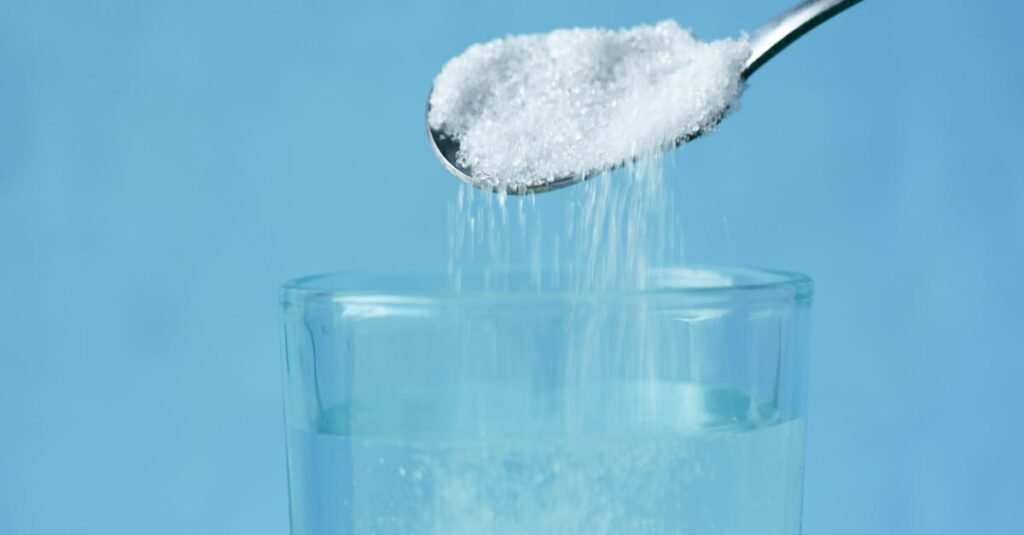Drinking salt water is a practice that has been around for centuries, often touted for its health benefits. However, the effects of consuming salt water can be quite complex, and many people are unaware of what it truly does to their bodies. In this article, we will explore seven key effects of drinking salt water, providing you with a clear understanding of how it impacts your health.
| Effect | Description |
|---|---|
| Dehydration | Increased thirst and potential dehydration due to high salt content. |
| Electrolyte Imbalance | Can lead to an imbalance of electrolytes in the body. |
| Kidney Strain | Increased workload on the kidneys to filter excess salt. |
| Digestive Issues | May cause nausea, diarrhea, or other digestive disturbances. |
| Blood Pressure Spike | Can lead to elevated blood pressure levels. |
| Potential Health Benefits | In moderation, may help with hydration and electrolyte replenishment. |
| Risk of Salt Poisoning | High intake can lead to salt poisoning, a serious condition. |
Dehydration
One of the primary effects of drinking salt water is dehydration. While it may seem counterintuitive, the high salt content in salt water can actually draw water out of your cells. When you consume salt water, your body requires additional water to process the excess salt, leading to increased thirst and potential dehydration. This is particularly concerning in scenarios where individuals mistakenly believe that drinking salt water will hydrate them.

Electrolyte Imbalance
Drinking salt water can also lead to an imbalance of electrolytes in your body. Electrolytes are essential minerals that help regulate various bodily functions, including nerve signaling and muscle contractions. Excessive salt intake can disrupt this balance, potentially resulting in symptoms such as muscle cramps, fatigue, and confusion. Maintaining proper electrolyte levels is crucial for overall health, and drinking salt water can jeopardize this balance.

Kidney Strain
Your kidneys play a vital role in filtering out excess salt from your body. When you consume salt water, your kidneys must work harder to process the additional sodium. This increased workload can strain the kidneys over time, leading to potential complications, especially for individuals with preexisting kidney conditions. It is important to be mindful of your salt intake to ensure your kidneys remain healthy and functional.

Digestive Issues
Another significant effect of drinking salt water is the potential for digestive issues. The high salt concentration can irritate the stomach lining, leading to symptoms such as nausea, vomiting, or diarrhea. For some individuals, these digestive disturbances can be quite uncomfortable and may deter them from consuming salt water in the future. It is essential to consider how your body reacts to salt water before making it a regular part of your hydration routine.

Blood Pressure Spike
Consuming salt water can lead to elevated blood pressure levels. Sodium is known to cause the body to retain water, which increases blood volume and, subsequently, blood pressure. For individuals with hypertension or those at risk for cardiovascular issues, drinking salt water can exacerbate these conditions. It is crucial to monitor your salt intake and consult with a healthcare professional if you have concerns about your blood pressure.

Potential Health Benefits
Despite the risks associated with drinking salt water, there are some potential health benefits when consumed in moderation. For instance, salt water can help replenish electrolytes after intense physical activity or during hot weather. However, it is essential to distinguish between natural sea salt and processed salt, as the former contains additional minerals that can be beneficial. Always consult with a healthcare provider before incorporating salt water into your routine.

Risk of Salt Poisoning
One of the most severe risks of drinking salt water is the possibility of salt poisoning. This condition occurs when the sodium levels in your body become excessively high, leading to symptoms such as confusion, seizures, and even coma. Salt poisoning is a serious medical emergency that requires immediate attention. It is crucial to understand the risks involved and to consume salt water with caution.

FAQ
Is drinking salt water safe in small amounts?
Drinking salt water in small amounts may not pose immediate dangers, but it is generally not recommended due to the risks of dehydration and electrolyte imbalance. Always consult with a healthcare professional before trying it.
What should I do if I accidentally drink salt water?
If you accidentally consume salt water, drink plenty of fresh water to help flush the salt out of your system. Monitor for any adverse symptoms and seek medical attention if you experience severe reactions.
Can salt water help with hydration?
While salt water may replenish electrolytes, it can also lead to dehydration due to its high sodium content. It is better to hydrate with fresh water or electrolyte drinks specifically designed for hydration.
Are there any health conditions that make drinking salt water more dangerous?
Yes, individuals with kidney disease, hypertension, or heart conditions should avoid drinking salt water, as it can exacerbate their conditions and lead to severe health complications.
References:
– [Centers for Disease Control and Prevention (CDC)](https://www.cdc.gov)
– [National Institutes of Health (NIH)](https://www.nih.gov)
– [World Health Organization (WHO)](https://www.who.int)



